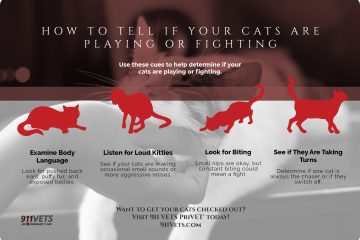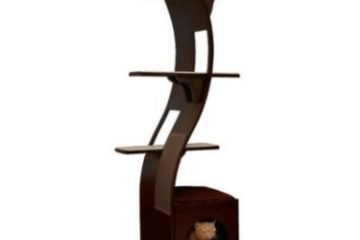Your cat wants you to watch her eat because she may feel vulnerable eating alone and seeks companionship during feeding times, making you her source of comfort and security. This behavior is common among anxious or stressed cats and doesn’t necessarily indicate a medical condition.
Factors like stress can contribute to this behavior.

Credit: www.amazon.com
Understanding The Behavior
Cats may want you to watch them eat because they feel safer and more comfortable with your presence. Some cats enjoy companionship during feeding times and see you as a source of comfort and security. While it is not always due to a medical condition, stress or anxiety could play a role in this behavior.
Why Does My Cat Want Me To Watch Her Eat?
Understanding the behavior of why cats want their owners to watch them eat can be both intriguing and puzzling. While each cat is unique in their preferences and behaviors, there are a few common reasons why your feline friend may exhibit this behavior.
Exploring The Reasons Behind The Behavior
1. Seeking security and companionship:
When your cat wants you to watch her eat, it may stem from a natural instinct of seeking security. Cats feel vulnerable while eating as their attention is focused on food rather than their surroundings. By having you nearby, your cat feels safer and more at ease during mealtime.
2. Affection and bonding:
Sometimes, cats simply enjoy the presence and attention of their owners. Watching your cat eat allows for a bonding experience, providing a sense of comfort and connection. Your presence assures them that they are not alone and strengthens your emotional bond with your furry companion.
3. Emotional support:
Cats, especially those who may be anxious or stressed, may find reassurance from having you nearby. Your cat may seek your attention during mealtime as a means of emotional support, particularly if they are experiencing any underlying issues or disturbances.
4. Mimicking natural hunting behavior:
Cats are natural predators, and their instinctive behavior can be reflected during mealtime. In the wild, cats would typically hunt in groups, ensuring safety from predators while feeding. By having you watch her eat, your cat may be mimicking this natural behavior, feeling more secure and satisfied during mealtime.
5. Habitual behavior:
It is also possible that your cat has developed a habit over time. If you have consistently watched your cat eat in the past, she may have come to expect and enjoy your presence during mealtime. The routine and familiarity of having you nearby can add a sense of comfort and relaxation for your cat.
Understanding and accommodating your cat’s desire for your presence during mealtime can strengthen your bond and ensure their well-being. However, if you notice any unusual changes in your cat’s eating behavior or overall health, it is always advisable to consult with a veterinarian to rule out any underlying medical conditions or concerns.
Affection And Security
Watching your cat eat may seem strange, but it’s actually a sign of affection and security. Cats often feel safer eating in the presence of their human companions and may crave the companionship during feeding times. It’s a way for them to bond with you and feel protected while they eat.
Affection and Security H3: The connection between companionship and eating It is not uncommon for cats to want their owners’ presence while they eat. This behavior, known as affection eating, is rooted in the instinctual need for companionship and security. Cats, by nature, are vulnerable creatures, and the act of eating leaves them exposed to potential predators. Therefore, they seek the comfort and reassurance that comes with having their trusted human nearby. H3: How affection eaters seek security during meals Affection eaters have a unique way of ensuring their security during meals. They rely on their owners’ presence to provide a sense of safety and protection. When a cat sees their owner watching them eat, it helps alleviate any potential anxiety or unease they may have. This simple act of companionship gives them the confidence to enjoy their meal without worrying about potential threats lurking in the shadows. To better understand this behavior, imagine a cat in the wild. In their natural habitat, they would typically eat with their fellow feline companions, creating a sense of safety in numbers. When cats eat alone, they may experience heightened stress or vulnerability. By seeking their owner’s presence, affection eaters are replicating this security and companionship they would normally have in the wild. Some affection eaters may even require additional encouragement or stimuli to eat. They may want to be petted while they dine or have their food brought closer to them. The sound of their kibble dish rattling or the sight of their owner nearby can greatly enhance their dining experience. These actions further reinforce their sense of security, making them feel more relaxed and at ease. In conclusion, cats wanting their owners to watch them eat stems from their innate need for affection and security. Affection eaters seek companionship during mealtimes to feel protected and reassured. By understanding and acknowledging this behavior, we can strengthen the bond between ourselves and our feline friends, creating a more harmonious and fulfilling relationship.Potential Anxiety And Boredom
When it comes to our feline friends, they never fail to amaze us with their quirky behaviors. One puzzling behavior that many cat owners may have noticed is their cat’s insistence on being watched while they eat. While this behavior may seem odd, it’s not uncommon among our furry companions. In fact, it can be attributed to potential anxiety and boredom. Let’s explore the role that stress and anxiety, as well as boredom, can play in why your cat wants you to watch her eat.
Exploring The Role Of Stress And Anxiety
Stress and anxiety can affect our cats just as they can affect us humans. Cats are sensitive creatures, and they can easily become stressed or anxious in certain situations. This stress or anxiety can manifest itself during mealtime, leading them to seek comfort in having someone watch them eat.
Stressors such as environmental changes, the presence of new pets or people, or a disruption in their routine can trigger anxiety in cats. These triggers can make your cat feel vulnerable and seek reassurance from their trusted human companion.
Additionally, cats who have experienced past trauma or neglect may have developed anxiety around mealtime. The act of being watched can provide them with a sense of security and prevent them from feeling alone or threatened during such a vulnerable activity.
It’s important to note that if your cat’s anxiety-related behavior persists or worsens, it’s always recommended to consult with a veterinarian or a feline behavior specialist to ensure your cat’s well-being.
Boredom As A Possible Factor
While stress and anxiety can explain the desire for companionship during mealtime, boredom can also be a contributing factor. Cats are intelligent and curious animals, and if they lack mental stimulation, they can become bored and seek attention in different ways.
Watching your cat eat may be a way for them to engage with you and alleviate their boredom. It’s their way of ensuring that they have your undivided attention and that they are not missing out on any potential interaction or playtime.
Providing your cat with enriching activities, such as puzzle feeders or interactive toys, can help combat boredom and decrease their need for constant attention during mealtime. By engaging their minds and bodies, you can give your cat a sense of purpose and help them feel more fulfilled.
In conclusion, while it may seem perplexing at first, the desire for your cat to be watched while eating can stem from potential anxiety and boredom. Understanding the role that stress, anxiety, and boredom play in your cat’s behavior can help you provide them with the necessary support and enrichment to ensure their well-being.
:format(jpeg):quality(75))
Credit: manypets.com
Feline Communication Through Purring
Cats may want you to watch them eat because they feel safer and more secure with your presence. Some cats are affection eaters and enjoy the companionship while they eat. This behavior is not necessarily caused by a medical condition but can be driven by stress or anxiety.
Understanding The Meaning Behind Purring During Meals
When it comes to feline communication, purring is a fascinating behavior that serves as a means for cats to express themselves. Whether they’re seeking comfort, showing contentment, or seeking attention, cats often use purring to communicate their emotions and needs. And this includes mealtimes!
While it may seem strange, some cats want their owners to watch them eat, and they purr as a way to communicate their satisfaction and happiness. Understanding the meaning behind purring during meals can help us better understand our feline friends and strengthen our bond with them.
Signs Of Contentment And Happiness
When your cat purrs while you watch her eat, it’s a clear sign of her contentment and happiness. Cats purr when they’re relaxed and enjoying a moment of comfort, and this extends to their mealtime experience as well.
Here are some signs that indicate your cat is content and happy:
- Your cat’s body is relaxed, with their tail up or curled in a relaxed position.
- They have a soft facial expression, with their eyes half-closed and their ears pointing slightly forward.
- They exhibit slow and rhythmic purring while eating, indicating their satisfaction and enjoyment.
- Your cat may rub against your leg or nudge your hand, seeking further interaction and reinforcement of the positive experience.
All these signs signify that your cat feels safe, comfortable, and valued in your presence during mealtime. By watching her eat, you are providing the companionship and support she desires, reinforcing the bond between you.
Conclusion
Understanding how cats communicate through purring during meals is essential for cat owners who want to strengthen their bond with their feline friends. By recognizing the signs of contentment and happiness, we can ensure that our cats feel safe, loved, and valued during their mealtime experiences.

Credit: m.facebook.com
Frequently Asked Questions For Why Does My Cat Want Me To Watch Her Eat
Why Won’t My Cat Eat Unless I Watch Him?
Cats may prefer to have someone watch them while they eat because they feel safer and less vulnerable. They may also crave companionship and see you as their source of comfort. This behavior is not necessarily due to a medical condition, but could be caused by stress or anxiety.
Why Does My Cat Wake Me Up To Watch Them Eat?
Your cat may wake you up to watch them eat because they feel safer and more comfortable eating in your presence. They may crave companionship during feeding times and see you as their source of comfort. It could also be due to boredom or territorial anxiety.
Why Does My Cat Want Me In The Room While He Eats?
Cats who want you in the room while eating are affection eaters. They may feel safer and less anxious with your company. Some cats enjoy being pet or need extra encouragement to eat. It’s not necessarily a medical issue, but stress can be a factor.
Conclusion
To truly understand why your cat wants you to watch her eat, we need to delve into her natural instincts and behaviors. Cats are solitary hunters and may feel vulnerable when eating alone. By having you nearby, she feels safer and more secure.
Additionally, some cats may crave companionship during mealtime, especially if they are anxious or stressed. Remember, this behavior is not necessarily a sign of a medical condition but can be influenced by factors like stress. So the next time your feline friend insists on an audience during mealtime, embrace the opportunity to provide comfort and companionship.



